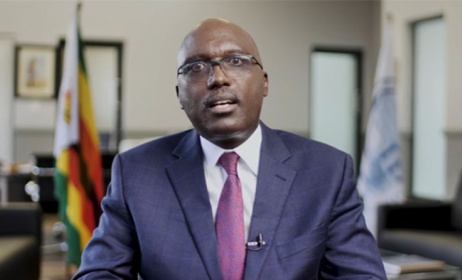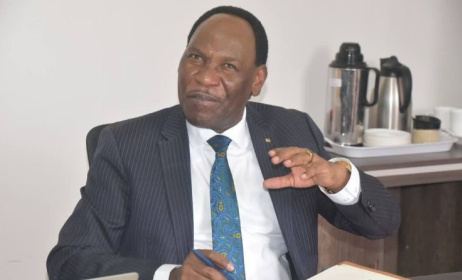What you should know about split sheets
If not properly managed, the process of collaborating in the creation of a song can stir up unnecessary legal drama. A split sheet is a written agreement between the people involved in the creation of music. It identifies each contributor and establishes ownership percentages among them. It has emerged, however, that a majority of artists and producers in Africa do not really use split sheets.
 Vivian says artists are allergic to paperwork.
Vivian says artists are allergic to paperwork.
The percentages agreed upon in a split sheet are important because they dictate how much each contributor would receive in royalties. A split sheet is usually drawn up between the writer, publisher and producer, although the most basic of split sheets would involve just the composers of a musical work. The shares in percentages are broken down further in cases where additional contributors are involved.
Nairobi-based intellectual property (IP) lawyer Gerry Gitonga says split-sheet templates may not be enough if artists want to forge watertight agreements among themselves.
“You don’t have to do a split sheet in the traditional sense. A legally binding contract will suffice," he told Music In Africa. "Whatever document you sign, it needs to meet the basic threshold of an enforceable contractual agreement. Many artists download copies of split sheets online and adopt them as they are. That can be dangerous. Copyright is your most prized possession as a creative, and the only way to protect it is through solid legal counsel."
Gitonga says there were no split sheets in most of the copyright disputes he has handled.
“All over the world split sheets are accepted as the best practice in the music business. A well-constituted split sheet should protect the rights of all parties and must have all the elements of a copyright contract.”
A majority of creatives are averse to admin and many of them approach legal matters with apathy. A number of creatives also find it difficult to discuss how potential income should be shared; bringing up a split sheet after an exciting studio session can be unnerving. This tendency, however, often comes back to haunt musicians after the hype of the creative process has passed. When money comes into the picture, legal disputes often take centre stage. This is a deterrent for investors who do not want to get involved in messy, and expensive, litigation.
“Artists are allergic to paperwork," Kenyan artist Vivian says. "We understand the importance of doing things right but it’s really hard. Art thrives in free expression and so we don’t want to be boxed by paperwork. Signed artists have an easier time because their label ensures that the paperwork is done. But it’s still a struggle for independent artists.
“Most artists in Kenya only sign split sheets when a deal is on the horizon. If you parted ways well and you're still friends with all the contributors, then there will be no problem. Trouble comes if there was a disagreement among the parties.”
Before signing a split sheet, it is wise for all parties to seek legal counsel to ensure that the document thoroughly protects their rights. Music professionals need to educate themselves about the various rights (songwriting copyright, recording copyright etc.) and appreciate the roles that all the right holders play.
The basic elements of a split sheet should include but are not be limited to:
- Name of the song in question.
- Legal names of the contributors involved.
- The role of each contributor in the creation and production of the song.
- Shares, in percentages, of the contributor in the song (songwriter[s], singer, producer, additional vocals etc.)
- Contact information of the contributors.
- Signature of each contributor.
“We show up for all the wrong forums," Vivian says. "I think that is why we remain behind. If you called artists for a happy hour with free drinks you will get 500 but only about five will show up for a seminar on copyright.
“We need to positively influence and mentor each other as artists. I recently attended a Kenya Copyright Board event on Copyright Day and I brought along one of the artists I'm mentoring. She was so amazed at the amount of information that is out there – she learnt so much. If you are a serious artists then look for information, it’s out there.”
In the digital era, there are platforms such as songsplits.com that allow producers and writers to use digital split sheets.
Here are some videos that will help you understand split sheets and why they are so important:



























Comments
Log in or register to post comments